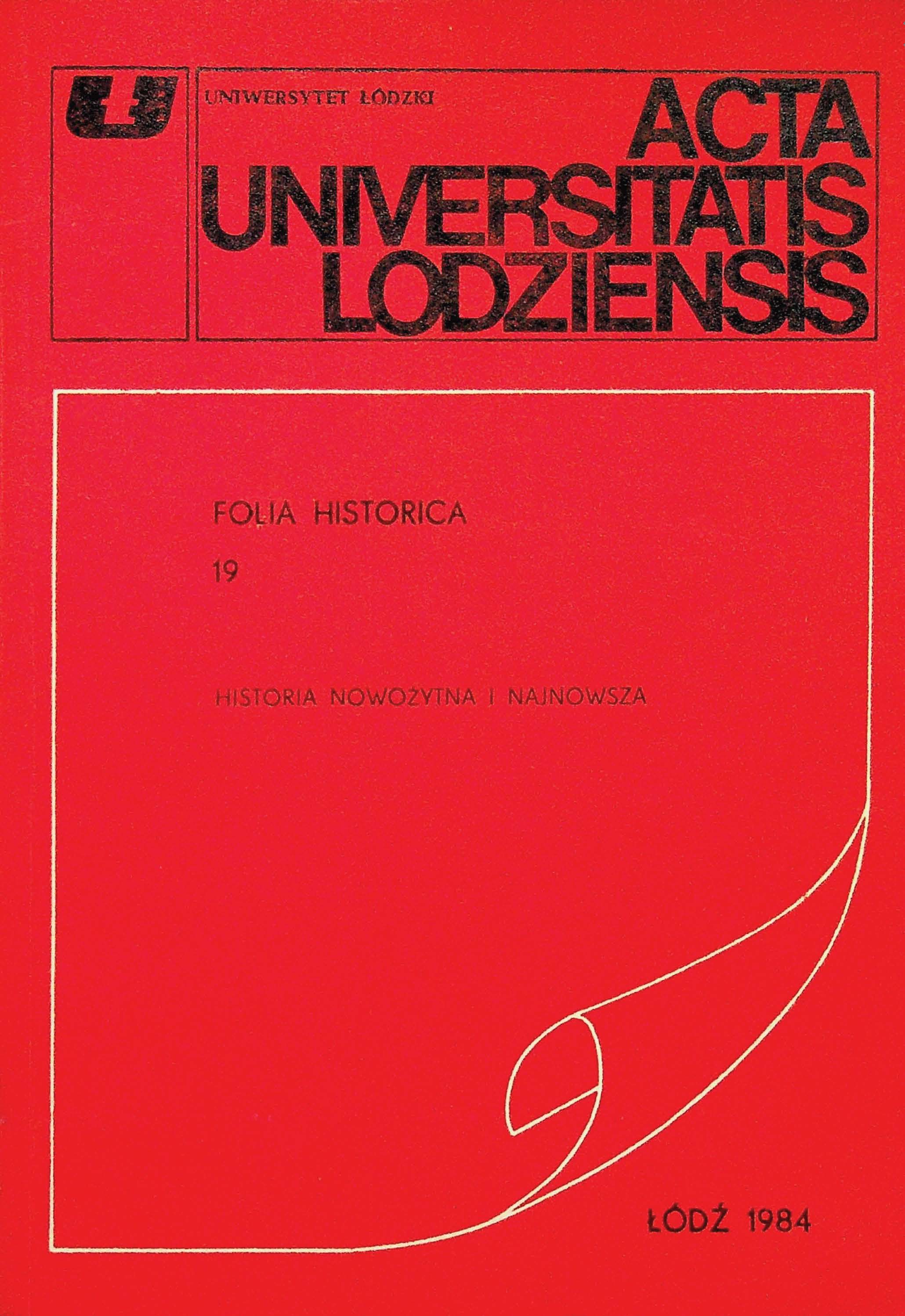Kształtowanie się i charakter polskiego ruchu politycznego na Węgrzech w latach 1939–1941
DOI:
https://doi.org/10.18778/0208-6050.19.03Abstrakt
The total number of the Polish immigrants in Hungary in 1939 amounted to about 60,000. A part of them returned to the occupied Poland while over 30,000 made their way to the West to join the allied forces. There remained about 15,000 interned Poles who enjoyed protection of the government authorities and the society. The author has analyzed a subject little known and one which has received little attention of the researchers, and namely development of the political life among refugees and its impact upon the Hungarian resistance movement and antifascist orientation of the society. Among the sources of information used by the author were official documents of the Ministry of Honveds in the Military Historical Archives and the Ministry of Internal Affairs. He also studied the national press, publications and interviewed the Poles permanently settled in Hungary. Unfortunately he was unable to utilize the archival materials stored in W. Sikorski Institute in London. This rich material allowed the author to reconstruct the main political groups and orientations their relations with the Hungarian population, and political reorientations taking place along with new developments. All political groupings followed the policy lines adopted by the Polish government in London. However, also there a dissent appeared between supporters of the "sanacja" system and those supporting Sikorski's government. After the outbreak of the war between Germany and the Soviet Union an antifascist trend was enhanced accompanied by growing friendly disposition towards the Soviet Union. A sizeable portion of the work is devoted by the author to methods of political activity and agitation in refugee camps in co-operation with Paris, later on with London and the Polish resistance movement. The government authorities feared, first of all, communist agitation and they counteracted its spreading. A developed network of Polish political groupings made it possible to establish a secret agency of the London government in Hungary, the personnel composition and activity of which are discussed by the author on the basis of archival materials. Finally, the author presents the attempts made by the then government authorities to curb development of the secret movement with simultaneous preservation of a tolerant attitude. The Polish refugees, understanding a difficult position of the Hungarian authorities, avaided all conflicts and actions against the law.
Pobrania
Pobrania
Opublikowane
Jak cytować
Numer
Dział
Licencja

Utwór dostępny jest na licencji Creative Commons Uznanie autorstwa – Użycie niekomercyjne – Bez utworów zależnych 4.0 Międzynarodowe.











